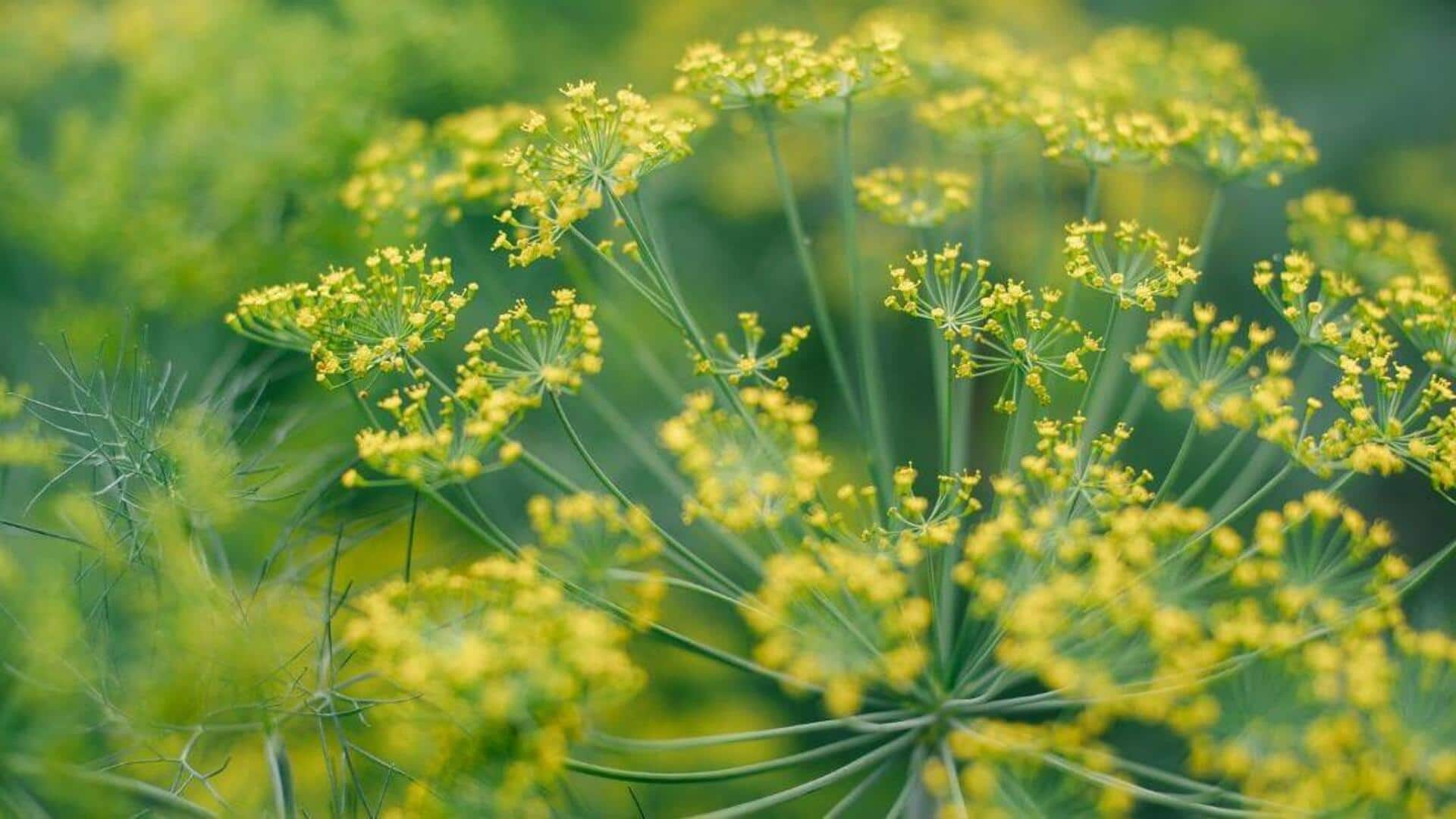
How to grow dill at home
What's the story
If you like to add fresh herbs to your dishes, growing dill indoors can be a great experience. This aromatic plant is known for feathery leaves and its unique flavor, making it an ideal indoor plant. Given the right conditions and care, dill can do well indoors and give you a continuous supply of fresh leaves. Here are some easy tips to grow dill inside your home.
Container choice
Choosing the right container
Selecting the appropriate container is crucial for growing dill indoors. A pot at least six inches deep will provide enough room for the roots to spread. Make sure the container has drainage holes to avoid waterlogging, which can harm the plant's roots. Using a saucer under the pot will catch excess water and keep your indoor space clean.
Light requirements
Providing adequate light
Dill also needs plenty of sunlight to thrive indoors. Keep your plant close to a south-facing window where it can soak up at least six hours of direct sunlight every day. If natural light isn't enough, try fluorescent or LED grow lights to make up for lighting requirements and keep your plant healthy.
Soil needs
Maintaining proper soil conditions
The ideal soil for growing dill indoors should be well-draining yet rich in organic matter. Mixing potting soil with perlite or sand not only enhances drainage but also improves aeration, important for root health. Maintain the soil's moisture slightly moist, neither dry nor soggy. Avoid overwatering as it can cause root rot, detrimental to the plant's growth.
Watering tips
Regular watering practices
Watering dill correctly is crucial for its indoor health and growth. Regularly check the top inch of soil; if it's dry, it's time to water your plant well until the water drains from the bottom of the pot. Don't let your plant sit in standing water, as it may cause root problems.
Pruning techniques
Pruning for better growth
Regular pruning is the secret to keeping your dill plants bushy instead of tall and leggy. Be sure to trim any yellowing or dead leaves without delay. Also, pinching off flower buds as soon as they appear redirects the plant's energy towards producing more leaves instead of seeds. This makes for a healthier and more productive plant.